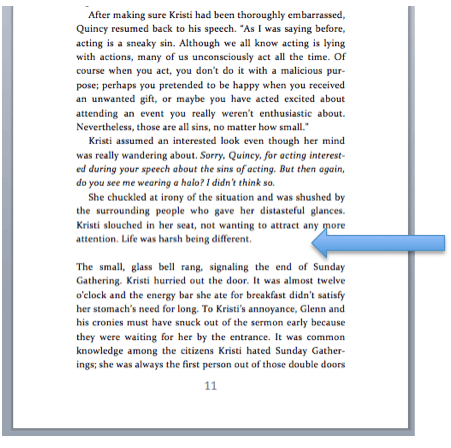Naruzeldamaster
 Sage
Sage
I generally follow my own rule of 'if the scene starts to feel 'long' end it' but sometimes I am unsure if keeping a chapter going for multiple scenes is a good idea?
I am at an impasse with my side project right now, where I have two scenes that could easily make for part of the 'first' chapter. But they're somewhat disconnected.
The first scene is introducing the reader to the gods of my fictional world, and their somewhat chaotic personalities. The time difference between it and the next scene effectively make it a prologue of sorts. Introducing the gods to the readers before they meet the protagonists is kind of an important part of the plot too.
The next scene is where the story actually 'starts' if that makes sense. It's disconnected enough from the first scene that it could easily make for a good chapter on it's own.
If I continue the scenes as one chapter, the chapter itself will be well over 12-15 pages long. I'm sort of on the fence, but I'm leaning more toward making the second scene it's own chapter.
I realize I went on a tangent there: So the question is the topic itself, I generally sort of get 'stuck' a lot (like I am right now) deciding on if a chapter should be a two part-er or a one and done.
I am at an impasse with my side project right now, where I have two scenes that could easily make for part of the 'first' chapter. But they're somewhat disconnected.
The first scene is introducing the reader to the gods of my fictional world, and their somewhat chaotic personalities. The time difference between it and the next scene effectively make it a prologue of sorts. Introducing the gods to the readers before they meet the protagonists is kind of an important part of the plot too.
The next scene is where the story actually 'starts' if that makes sense. It's disconnected enough from the first scene that it could easily make for a good chapter on it's own.
If I continue the scenes as one chapter, the chapter itself will be well over 12-15 pages long. I'm sort of on the fence, but I'm leaning more toward making the second scene it's own chapter.
I realize I went on a tangent there: So the question is the topic itself, I generally sort of get 'stuck' a lot (like I am right now) deciding on if a chapter should be a two part-er or a one and done.

 Myth Weaver
Myth Weaver
 Istar
Istar Maester
Maester
